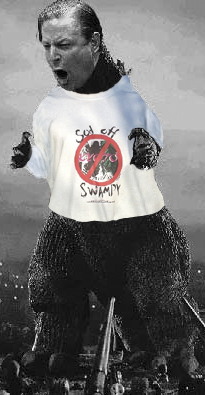You Can Send Me That Bottle of Opus Now
The Supreme Court struck down the Direct Sales Ban.
WASHINGTON (Reuters) – States cannot ban direct out-of-state wine shipments if they allow their wineries to sell directly to consumers, the U.S. Supreme Court ruled on Monday in a decision that could lead to lower prices and more easily available choices.
By a 5-4 vote, the high court ruled that the bans involving out-of-state wineries unconstitutionally discriminated against interstate commerce. Such laws have been adopted in 23 states while the other 27 states allow direct wine sales, industry officials said.
Justice Anthony Kennedy said for the court majority that the laws at issue from Michigan and New York were designed to grant in-state wineries a competitive advantage over wineries located in other states.
“We hold that the laws in both states discriminate against interstate commerce in violation of the Commerce Clause (of the U.S. Constitution) and that the discrimination is neither authorized nor permitted by the 21st Amendment,” Kennedy concluded.
Kennedy rejected the arguments by the states seeking to justify the bans as necessary to protect minors from alcohol and to be able to collect taxes on the sales.
In states with the ban, out-of-state wineries may sell only to wholesalers, who distribute to retailers, who in turn sell to consumers. A U.S. Federal Trade Commission report has found the bans reduce consumer choice and increase wine prices.
Music to my thirsty ears.

I have to say that, while this result may be nice a practical sense, I’d have to read the opinion before I say the Court got it right: whenever there’s a close decision that’s so ideologically split, I tend to suspect they got it wrong, but OTOH I usually agree with Scalia on most things, so it deserves a closer look. The excerpt suggests the rationale was a straightforward reinterpretation of the Commerce Clause, undercutting decades of 21st Amendment jurisprudence–and that alone would seem to me to be mistaken–but it may be narrower than that and rest on other premises as well. Let’s find the opinion.
OK, here it is: http://a257.g.akamaitech.net/7/257/2422/15may20050800/www.supremecourtus.gov/opinions/04pdf/03-1116.pdf
Having skimmed them, I find both Stevens’ and Thomas’s dissents far more convincing than the majority opinion. I may have to post on this myself fairly soon.
I hope you do, Dave. On the face of it, it seems like banning interstate mail order sales while allowing intrastate would violate the commerce clause.
I’m too tired to do a whole post on it now, so that’ll have to wait until tomorrow, but in short I find Thomas’s dissent stronger than Stevens’s, although they focus on different things and complement each other rather than conflicting.
Thomas’s argument rests on the longstanding principle that the “dormant commerce clause” is only a bar to state action in interstate commerce when Congress has not actually authorized such action, and through the Webb-Kenyon Act, Congress has. In other words, Congress can authorize the states to do things that they could not do on their own, like discriminate against out-of-state actors.
Stevens’s dissent focuses more closely on the 21st Amendment itself: its language, the history and purposes behind it, and early cases applying it. I’m not going to go into detail now, but suffice it to say that because of the 21st Amendment, state regulation of alcohol is different as a matter of federal constitutional law from commerce in anything else.
It seems Todd Zywicki at Volokh is not so impressed with Stevens’ dissent.
I enjoyed reading that. I’ll enjoy it even more when someone can send me wine to slurp with it. Hopefully some drunk 12 year old with a credit card and nothing better to do.